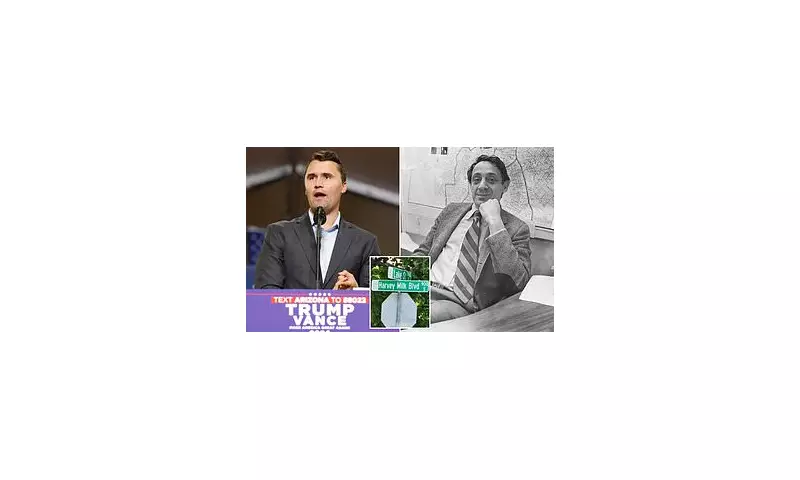
A heated political confrontation has erupted in Utah over plans to honour gay rights trailblazer Harvey Milk, revealing deep cultural divisions within American conservatism.
The Battle Over Memory and Legacy
Conservative commentator Charlie Kirk has launched a vehement campaign against proposals to rename a Utah roadway after Harvey Milk, one of America's first openly gay elected officials. The initiative has exposed significant rifts within right-wing circles about how to approach LGBTQ+ historical figures.
"This is cultural vandalism," Kirk declared to his substantial following, framing the renaming as an attempt to "impose progressive values" on communities that reject them.
Unexpected Alliance Emerges
In a surprising twist, fellow conservative activist Trevor Lee has broken ranks, defending the proposal as a legitimate recognition of historical significance. "We cannot erase figures who shaped our nation's story, even when we disagree with their politics," Lee argued, creating an unusual ideological split.
The debate has transcended typical political boundaries, with local residents expressing mixed reactions. Some view the renaming as overdue recognition for civil rights advancement, while others see it as forced acceptance of values conflicting with their beliefs.
Historical Context Meets Modern Politics
Harvey Milk's legacy as a pioneering gay rights activist and San Francisco supervisor, assassinated in 1978, continues to provoke strong reactions decades later. His posthumous Presidential Medal of Freedom in 2009 cemented his status as an LGBTQ+ icon, but his commemoration remains contentious in conservative regions.
The Utah controversy reflects broader national tensions about which historical figures deserve public honour and who decides which legacies are celebrated in public spaces.
What Happens Next?
Local officials now face mounting pressure from both sides as they weigh the decision. The outcome could signal how communities across America navigate similar debates about representation, historical memory, and cultural values in public commemorations.
As the debate intensifies, it raises fundamental questions about whether public spaces should reflect diverse historical narratives or maintain traditional perspectives.





